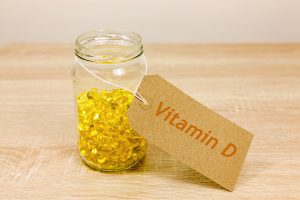 Are you getting enough Vitamin D? This is a key element for senior health. Until recently it was overlooked. It’s a fat-soluble vitamin that we metabolize after sun exposure. Now research tells us it’s not only good for strong bones but is a major component for brain health. You can boost your brain health by simply taking a daily supplement of vitamin D.
Are you getting enough Vitamin D? This is a key element for senior health. Until recently it was overlooked. It’s a fat-soluble vitamin that we metabolize after sun exposure. Now research tells us it’s not only good for strong bones but is a major component for brain health. You can boost your brain health by simply taking a daily supplement of vitamin D.
Even for those of us who live in year-round sunshine, we may not be absorbing it or converting enough of it. Studies indicate that up to 41 percent of Americans are deficient in vitamin D. I was surprised to find that my D3 levels were low, even though I’m outside in the sun at least two hours a day.
Part of the problem may be sun protection lotions to prevent skin cancers. But that’s not the whole story. As we age, our body doesn’t work as well to convert sunshine into vitamin D. This is something seniors should pay attention to and correct, in order to avoid dementia, cognitive decline, and memory loss.
Vitamin D and Brain Health
According to an article from the National Institutes of Health on The Role of Vitamin D in Brain Health:
This vitamin strongly known for its role in calcium and bone metabolism and maintaining bone integrity, has been deduced to have more functions than just that. Scientists with the support of multiple types of research have linked the hormone-like vitamin to some disorders throughout the body such as cardiovascular disease, cancer, stroke, and metabolic disorders including diabetes. Cognitive impairment, dementia, psychosis, and autism have been added to the list as well now in the interchange of decreased vitamin D levels.
Vitamin D Deficiency
Deficiency is a level of 20 ng/ml or less. From what I’ve read, doctors are recommending we have levels in the range of 60-100 ng/ml. The recommended dosage to obtain these levels if 5,000 IU in the form of vitamin D3. I’ve been taking 2,000 IU three times a day in the form of gel caps.
Food that Boosts Brain Health
Our food supply and consumption habits likely contribute to suboptimal levels. A diet high in carbohydrates and low in fat doesn’t help. Some drugs increase the breakdown of vitamin D in the body.
Very few foods in nature contain vitamin D. The flesh of fatty fish (such as salmon, tuna, and mackerel) and fish liver oils are among the best sources. Small amounts of vitamin D are found in beef liver, cheese, and egg yolks. Vitamin D in these foods is primarily in the form of vitamin D3. Some mushrooms provide vitamin D2 in variable amounts. Mushrooms with enhanced levels of vitamin D2 from being exposed to ultraviolet light under controlled conditions are also available.
Vitamin D and Dementia
Low levels of vitamin D have been associated with the risk of all causes of dementia, including Alzheimer’s disease, and with multiple sclerosis.
In the brain, vitamin D acts as a steroid hormone, particularly in areas related to learning and memory. Vitamin D regulates nerve growth factor production, neurotransmitter release, calcium balance, oxidative stress mechanisms, and the immune system’s inflammatory responses.
In the Alzheimer’s brain, it appears that vitamin D may help to decrease the burden of amyloid beta-42. People with MS with levels in the range of 60 ng/ml show less disease activity and disability progression.
Vitamin D3 is one of the supplements I use daily, along with Magnesium Citrate. I’ll explain more next time about the magnesium connection to senior health.

Recent Comments